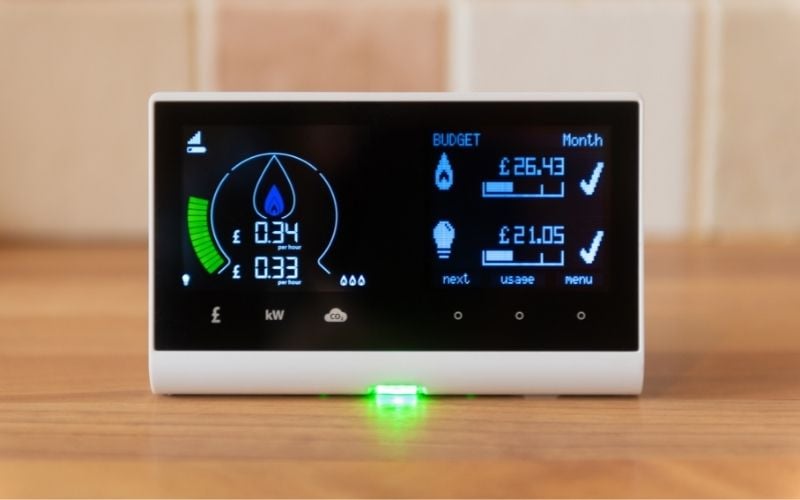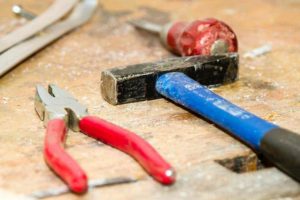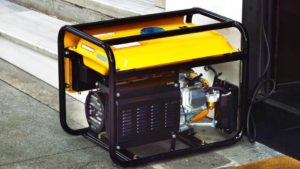As the world continues to move towards more sustainable energy sources, managing the use of off-grid appliances has become a critical aspect of energy monitoring.
With the increasing adoption of renewable energy systems such as solar panels and wind turbines, it is essential to track and optimize the performance of these devices in real-time.
By implementing an effective energy monitoring system, households and businesses can gain valuable insights into their energy consumption patterns, identify areas for improvement, and make adjustments that result in cost savings and reduced carbon emissions.
We will explore some practical solutions for managing the use of off-grid appliances, providing you with actionable information to take control of your energy usage today!
Install a central monitoring system
This system can track the energy usage of all the appliances in the home, providing real-time data on energy consumption. This information can be used to identify areas for improvement and optimize energy usage.
With this system, you can track the real-time energy consumption of all your appliances, giving you valuable insights into how to optimize your energy usage.
The system can monitor everything from your lights and thermostat to your refrigerator and washing machine, providing a comprehensive picture of your energy usage.
This information can be used to identify areas for improvement, such as which appliances are using the most energy and when.
With this knowledge, you can adjust your usage habits to optimize your energy consumption and reduce your energy bills.
The central monitoring system can alert you to any potential issues with your appliances, allowing you to address them before they become major problems.
By installing a central monitoring system, you can take a proactive approach to managing your energy usage and save money on your energy bills.”
Use smart plugs
Smart plugs can be used to monitor the energy usage of individual appliances and can be controlled remotely. This allows homeowners to turn off appliances that are not in use, reducing energy waste.
“Smart plugs are an effective way to monitor and control the energy usage of individual appliances in your home.
These plugs can be installed in your electrical outlets and can be controlled remotely through a smartphone app.
This allows you to turn off appliances that are not in use, reducing energy waste and saving you money on your electricity bill.
With smart plugs, you can also set schedules for when your appliances should be turned off, so you don’t have to remember to do it every day.
Some smart plugs can be integrated with voice assistants like Alexa or Google Assistant, allowing you to control your appliances with just your voice.
This convenience and ease of use make smart plugs a valuable addition to any energy-conscious home.”
Implement a scheduling system
A scheduling system can be used to automate the on and off times of appliances, ensuring that they are only used when needed. This can help reduce energy consumption and save money on energy bills.
“By implementing a scheduling system, you can automate the on and off times of your appliances, ensuring that they are only used when needed.
This can help you reduce energy consumption and save money on your energy bills.
For example, you can program your scheduling system to turn off your lights and electronics when they are not in use, or to adjust the temperature of your home based on your daily routine.
This can be especially useful for appliances that are used infrequently, such as your clothes dryer or dishwasher.
By automating their on and off times, you can save money on your energy bills and reduce wear and tear on these appliances.
A scheduling system can help you avoid forgetting to turn off appliances when you leave the house, which can be a common source of wasted energy.
By implementing a scheduling system, you can take control of your energy usage and make more efficient choices.”
Use energy-efficient appliances
Choose appliances that are Energy Star certified, as these appliances have been designed to use less energy without sacrificing performance.
Using energy-efficient appliances can significantly reduce your energy consumption and lower your utility bills.
Energy Star certified appliances are designed to use less energy without sacrificing performance, so you can rest assured that you’ll get the same level of performance as you would from a non-energy-efficient appliance.
In fact, Energy Star certified appliances can save you up to 20% on your energy bills compared to standard appliances.
Plus, many energy-efficient appliances also come with advanced features such as smart sensors that optimize energy usage, automatic shut-off features, and advanced motor technology that reduces energy waste.
By choosing Energy Star certified appliances, you’ll not only save money on your energy bills, but you’ll also be doing your part to reduce your carbon footprint and contribute to a more sustainable future.
So, look for the Energy Star label when shopping for new appliances and make the smart choice for your home and the environment.
Monitor energy usage by appliance
Keep track of how much energy each appliance is using, and identify any appliances that are using excessive amounts of energy. This information can be used to make changes to reduce energy consumption.
To effectively monitor energy usage by appliance, it is important to first gather data on the energy consumption of each device in your home or business.
This can be done using a smart plug or energy monitor that measures the wattage of each appliance and tracks energy usage over time.
You can then use this data to identify which appliances are using the most energy and make changes to reduce their consumption.
For example, if you find that your refrigerator is using more energy than expected, you may consider replacing it with a more energy-efficient model or adjusting the temperature setting to reduce usage.
You can use this data to identify opportunities to shift non-essential appliance usage to off-peak hours when energy rates are lower.
By taking action based on this information, you can make meaningful changes to reduce your energy usage and lower your energy bills.
Implement load management
Load management techniques, such as time-of-use pricing or demand response programs, can help manage energy usage and reduce costs.
Implementing load management techniques, such as time-of-use pricing or demand response programs, can significantly help manage energy usage and reduce costs.
Time-of-use pricing involves setting different electricity rates based on the time of day, with higher rates during peak demand hours and lower rates during off-peak hours.
This encourages consumers to shift their energy usage to off-peak hours, reducing the strain on the grid during peak periods.
Demand response programs, on the other hand, involve adjusting energy usage in response to changes in the grid’s availability and demand.
By implementing these techniques, consumers can optimize their energy usage, reduce their energy bills, and help mitigate the strain on the grid during peak periods.
To implement load management techniques effectively, it is important to work with a trusted energy advisor or provider who can help assess energy usage, identify areas for improvement, and implement the appropriate load management strategies.
Consumers can consider investing in energy-efficient appliances and devices, and adjusting their energy usage habits to further reduce energy costs and optimize their energy usage.
Use renewable energy sources
Consider installing solar panels or wind turbines to provide a portion of your energy needs, reducing your reliance on the grid and lowering your energy bills.
Installing solar panels or wind turbines can significantly reduce your reliance on the grid and lower your energy bills.
Solar panels can be installed on your roof or in your backyard, and can generate electricity from sunlight.
Wind turbines can be installed on your property or in your community, and can harness the power of wind to generate electricity.
By using renewable energy sources, you can reduce your reliance on fossil fuels and lower your carbon footprint.
Many governments offer incentives and rebates to homeowners who install solar panels or wind turbines, which can help offset the upfront costs of installation.
With proper maintenance, solar panels and wind turbines can provide a reliable source of energy for your home for many years to come.
By taking advantage of renewable energy sources, you can not only save money on your energy bills but also contribute to a more sustainable future for our planet.
Use energy-monitoring software
Energy-monitoring software can provide detailed information on energy usage and help identify areas for improvement. This software can also be used to track the performance of energy-saving measures over time.
“Energy-monitoring software is a powerful tool that can provide you with detailed information on energy usage and help identify areas for improvement.
With this software, you can track the energy consumption of your building or facility in real-time, pinpointing the specific systems and appliances that are using the most energy.
This information can then be used to make adjustments and optimize energy usage, such as adjusting thermostat settings or scheduling energy-intensive tasks to run during off-peak hours.
Energy-monitoring software can be used to track the performance of energy-saving measures over time, allowing you to see the positive impact of your efforts and make further adjustments as needed.
By using energy-monitoring software, you can gain a better understanding of your energy usage and take actionable steps to reduce costs and improve efficiency.”
Learning More
Hey we’re just scratching the surface. Here are some additional resources:
- NREL’s Home Energy Management System—foresee | Buildings | NREL
- Energy Management of Smart Home with Home Appliances, Energy Storage System and Electric Vehicle: A Hierarchical Deep Reinforcement Learning Approach – PMC
- An Appliance Scheduling System for Residential Energy Management – PMC
- Smart Home: The Smart Grid | SmartGrid.gov






